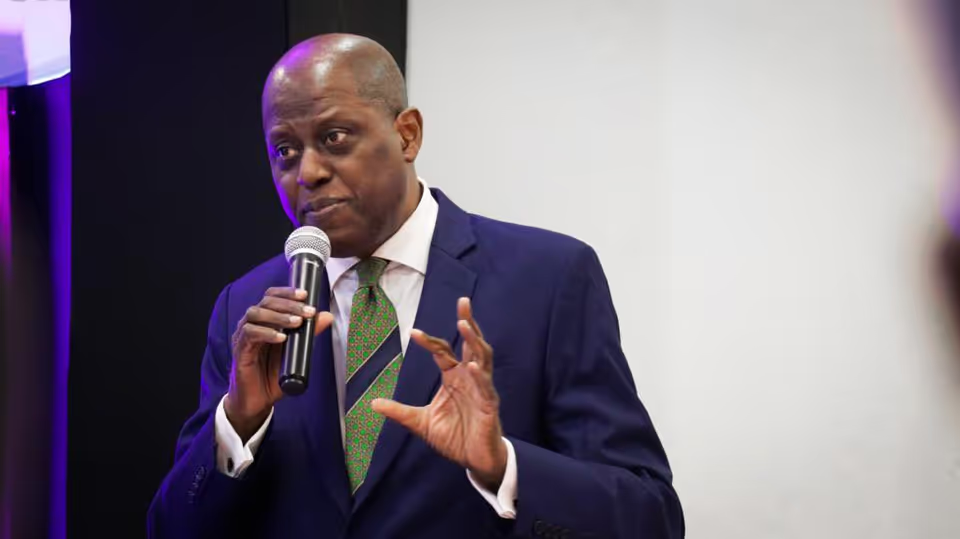The Central Bank of Nigeria (CBN) governor, Olayemi Cardoso, recently explained that the restrictions placed on crypto exchanges, like Binance, are intended to limit illegal financial activities conducted through these platforms. This clarification came just a few days after the CBN implemented the blocking measures.
Cardoso raised concerns about billions of dollars in unidentified transactions, totalling $26 billion, funnelled through Binance Nigeria. “We are moving to a very aggressive regulatory environment,” the CBN governor disclosed during a press briefing following the 293rd Meeting of the Monetary Policy Committee.
Last week, the CBN directed the country’s telecom regulator, the Nigerian Communications Commission, to suspend access to crypto websites like Binance, Coinbase, and Kraken. This action came a day after Binance limited peer-to-peer transactions trading the USDT/NGN pair, a move that coincided with the Naira’s plunge to record lows.
According to Bayo Onanuga, Special Adviser on Information and Strategy to President Bola Tinubu, “Binance, facing a regulatory showdown in many countries, and causing disruptions in the currency market, should not be allowed to dictate the value of the naira, not on its crypto exchange platform. Other crypto platforms such as Kucoin and Bybit should be banned from operating in our cyberspace. FX platform Aboki should be re-banned.”
In November, Binance faced a $4.3 billion penalty after admitting guilt to US criminal charges involving money laundering and sanctions violations.
“We have a responsibility to protect Nigerians,” Cardoso said. He further revealed that the CBN had collaborated with other agencies like the Securities Exchange Commission (SEC), the police, and the anti-graft commission, confirming their concerns about the crypto market. “We are determined to ensure that we take charge of our market to avoid any infraction,” he said.
This isn’t the first regulatory skirmish between Binance and Nigeria. In June 2023, the SEC labelled Binance an illegal entity. While Binance denied any connection to the implicated “Binance Nigeria Limited,” the SEC clarified its stance by referencing Binance’s official website in a subsequent circular.
Despite the recent regulatory tensions, Binance has a history of engagement with the Nigerian government. Notably, in 2023, the Nigeria Export Processing Zones Authority expressed interest in partnering with Binance to create West Africa’s first virtual free zone.
CBN raises interest rates to 22.75%
Away from crypto regulations, Governor Cardoso also announced an increase in the Monetary Policy Rate (MPR) by 400 basis points, bringing it to 22.75%. With inflation at 29.90%, he said the new MPR is part of moves to tackle the country’s inflation.
“Previous policy rate hikes have slowed the rise in inflationary pressure but not to a desirable extent. Members [of the Monetary Policy Committee] concluded that inflation could pose more regulatory challenges in the near and medium term if not effectively anchored,” Cardoso added.
Editor’s Note: An earlier version of this article incorrectly stated that Binance Nigeria processed $26 billion in the last four years. The correct timeframe is the last one year, according to the CBN governor.
Get passive updates on African tech & startups
View and choose the stories to interact with on our WhatsApp Channel
Explore




